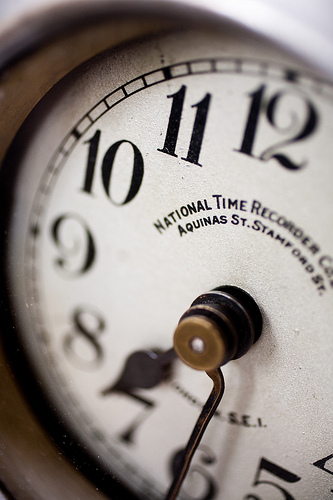
Daylight Savings Time May Cost You Extra
For Americans, it’s that time of the year again—time to move your clocks an hour ahead; losing a precious hour of sleep in the process. For many, the time change associated with daylight savings time (DST) also means spending several days or even weeks feeling generally off-kilter.
As reported by Prevent Disease:
“A study, published in 2007... combined surveys from 55,000 people in central Europe with data on 50 individuals' sleeping and wakefulness patterns for eight weeks around the shifts to and from daylight saving time."
March 4, 2015 | Source: Mercola.com | by Dr. Mercola
For Americans, it’s that time of the year again—time to move your clocks an hour ahead; losing a precious hour of sleep in the process. For many, the time change associated with daylight savings time1 (DST) also means spending several days or even weeks feeling generally off-kilter.
As reported by Prevent Disease:2
“A study, published in 2007… combined surveys from 55,000 people in central Europe with data on 50 individuals' sleeping and wakefulness patterns for eight weeks around the shifts to and from daylight saving time.
The researchers found people never fully adjust their circadian rhythms to the hour shift associated with daylight saving time (or, as it is known in Europe, summer time).
Springing ahead by an hour, however, was most difficult for night owls — people prone to wake up and go to sleep late, they found.” [Emphasis mine]
The issue of whether daylight savings time (DST) should be abolished comes up at regular intervals, and for good reason.
As explained in the featured video, daylight saving time is intended to give you more access to daylight hours, thereby reducing energy costs and promoting healthy outdoor activities, and for nearly a century countries around the world have moved their clocks forwards in the spring and backward in the fall.
But is it really worth it? There doesn’t appear to be any good reason for this time tinkering in today’s modern age, and a number of countries, and even regions within countries, have opted out of DST.
Areas that do not have DST include: the northern part of Brazil, Saskatchewan (Canada), large portions of Australia, Puerto Rico, the Virgin Islands, Hawaii, American Samoa, Guam, Northern Mariana Islands, and the state of Arizona.
Daylight Savings Time Is Rough on Your Health
The research is quite clear on the health effects of this meddling with time. In short, it’s not good for you, and spikes in both heart attacks3 and suicide4 in the days following daylight savings attest to the stark reality of such findings.
The adverse health effects of losing an hour of sleep when the clocks move forward—and the ripple-effect it causes for days and weeks afterward—are significant, and really highlight the importance of sleep for mental and physical functioning.
The “Monday cardiac phenomenon” has been recognized for some time.5 More cardiac events occur on Mondays than any other day of the week, and changes in sleep associated with the transition from weekend to work week may play a significant role.
When daylight savings gets added into the mix, this risk tends to become even more pronounced One 2012 study6 found that heart attacks increased by 10 percent on the Monday and Tuesday following the time change to DST. Heart attacks decreased by 10 percent on the first Monday and Tuesday after clocks are switched back in the fall.
